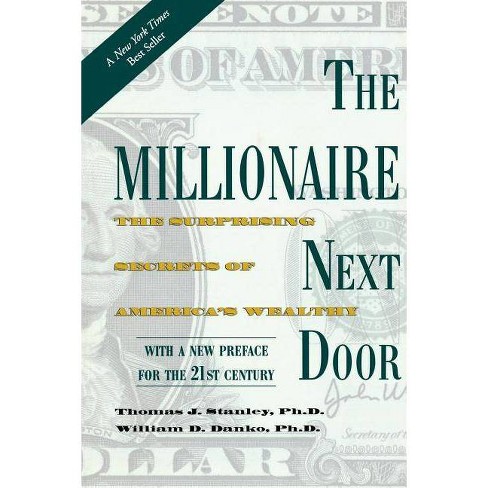

The sections involving children are especially worrisome.

Hoarding money by not giving to charity, or even your own children, does it's own kind of spiritual damage. Saving money by not going on vacation deprives both you and your children potentially life changing experiences. Living in better neighborhoods might be more expensive, but they are often safer, provide better schools, and may generally provide a better investment in real estate. Single minded dedication to amassing wealth is often penny wise and pound foolish.
But there are issues with some of the advice the authors provide. The book provides many examples of folks who did, indeed find financial success. Careful planning, living below one's means, adequate income and proper investing can lead to economic self sufficiency. If you wish to retire as a paper millionaire, the basic advice presented in this book is sound, particularly if you happen to have disposable income. Again, the basic idea is a good to motivate spending less, reducing consumerism, increasing savings and investment and working toward financial independence-but it could have been much, much shorter, less preachy and less repetitive. Spend as little as possible by denying yourself or convincing yourself to be happy with the minimum in most or all things, and accumulate millions which you shouldn't spend when become a millionaire either and shouldn't leave to heirs. And since you can't take it with you.I'm not sure that the end game is really that clear here. And they advocate not leaving that money to heirs as it will make them into lazy, rampant consumers. Of course, don't spend like a drunken college student with their first VISA card, but the authors seem to admire people who won't even spend their money once they've accumulated millions. That's fine, but it fails to address the idea of actually ENJOYING your money now. Third-and this depends on personal philosophy-it seems to be about the idea of saving up money simply for the sake of having a lot of money and not needing to worry about money in the future. Just don't spend money and you'll have a lot of money someday. There isn't a lot of practical advice in there besides don't spend a lot of money during your lifetime, whether that be on cars, clothing, homes, watches, vacations-whatever. Second, the book hammers home the idea over and over that it isn't who you are that makes you a millionaire, or even how much money you make, it's how much money you don't spend. It could have been a long article on Medium and gotten the same point across (yes, I know it was written before was created, but you get the idea.) It just goes on for hours explaining again and again who millionaires are, who they are not and how they spend (and more often DON'T spend) their money. There are a few problems with the book, however: First, it could have been WAY shorter. The idea behind this book is a good one: spend far less on material goods than you need to, don't fall into the trap of consumerism and instead save and invest as much of your money as you possibly can and some day you'll be a millionaire or multi-millionaire. So if you say to yourself,'I already know most of this stuff', then look around and ask yourself 'Am I the Millionaire Next Door?'.Įight hours of repetition of a simple idea I guess I always knew all this, but apparently I needed this great book to tell me knowing but not doing is just as bad as not knowing at all. Once I calculated that I was really paying 40% of my net worth in income taxes, it became painfully obvious that simply increasing my net worth contributions will automatically reduce my income taxes and therefore burn down this 40% ratio from both ends. Finally, I learned that the govt taxes earnings and not necessarily net worth. Simply put more away and I will be in the same position at the end of the month, penniless but with a higher net worth. Truth is, I am spending whatever is left. I thought that because I ran out of money at the end of the month that I must be saving as much as I could afford at the beginning of the month. The extra $10k I might spend on a luxury import will translate into $100k less I'll have 15 years from now. I have always tried to become rich so I could drive a great car.


 0 kommentar(er)
0 kommentar(er)
